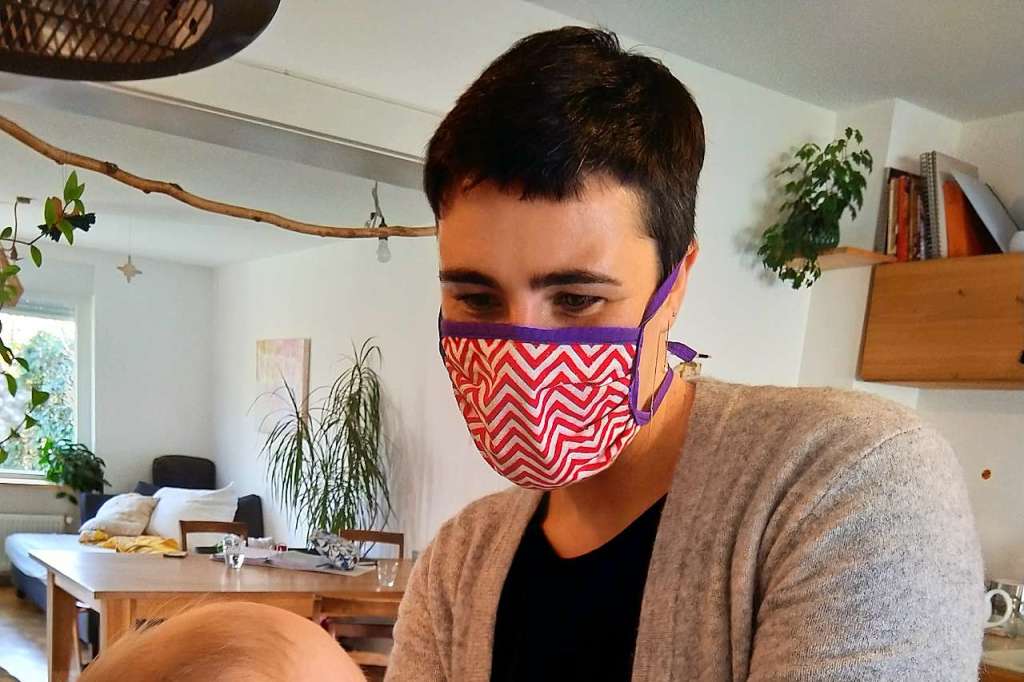“International Year of Nurses and Midwives”
From Anna Henschel
Sun, December 27, 2020 at 12:40 pm
Sdwest
–
–
Nursing professions experience a new public perception in the Corona period. The WHO even declared 2020 to be the year of nurses and midwives – the latter, however, are hardly noticed.
Since Corona, the performance and the need of carers who save lives have come more into the focus of the public. The work of those who take care of new life, however, has so far often only been recognized in private. The midwifery associations are still fighting to have their profession recognized as systemically relevant across Germany. Then the state would step in for the corona protective clothing and midwives would be entitled to child care for their children.
What many pregnant women and mothers do not know: Their care mission goes far beyond obstetrics. Alexandra Heidemann has been working as a freelance midwife in Freiburg for many years and, on her home visits, gives an intimate insight into a blind corner of social perception.
Monday, 9 a.m. Alexandra Heidemann ignites the engine, suddenly wild guitars from the loudspeaker shred the quiet morning mood. The 40-year-old focuses her gaze out of her striking green-brown eyes on the street, while she maneuvers the car through the narrow streets of Ebringen towards Freiburg and prepares herself for the first of four home visits. Alexandra Heidemann has been a self-employed midwife since 2004 and prepares expectant mothers for childbirth or takes care of them in the subsequent postpartum bed.
Tine greets friendly when we enter the house. Her eyes seem alert and alert, nothing in her indicates that the birth a few days ago was exhausting. Tine’s husband Thomas cradles the little one in his arms and keeps himself in the background. One with a pacifier, the other with a mask.
“Oh, I’m really jealous.” Alexandra Heidemann
When the baby is swaddled by dad and weighed by Alexandra Heidemann, it starts to scream: 4,060 grams, good flow, lots of pee, fit guy, attests Alexandra Heidemann. She takes care of the sensitive belly button with skilful movements, then it’s done: back to Papa’s arms, go back to sleep. The midwife now devotes the rest of her round to the mother. “Oh, I’m very jealous,” admits Alexandra Heidemann, while she routinely massages Tine’s stomach with stroking movements to activate the regression of the uterus. She remembers her own stretch marks, of which Tine is nowhere to be seen. The two women begin to chat, the face mask hiding their facial expressions, but not the intimacy between them. A few years ago, the experienced midwife Tine cared for the second child of the couple who was born with an infection. Even then, in the difficult situation, the family benefited greatly from the midwife’s knowledge, experience and empathy, reports Tine.
Alexandra Heidemann spends around half an hour on various matters
“Just the time she takes,” she enthuses about the home visits, then as now. During the current birth, the 35-year-old lost a lot of blood and will receive an impulse lecture from Alexandra Heidemann on the subject of a diet containing iron and recommendations for suitable preparations to stabilize the iron value. The midwife can take half an hour to an hour per home visit, depending on what is pending: antenatal care, help with pregnancy problems, home postpartum care or breastfeeding and complementary food advice. Tine learned for the first time from her neighbor that pregnant women are entitled to home care and, as a mother, to aftercare by a midwife.
Fathers can also contribute
Especially with the first child, women are confronted with many questions in this exceptional situation before and after the birth: To ensure that the joy of the baby does not turn into overwhelming, many women need professional advice in dealing with the newborn – even if they are already children to have. Some have physical complaints or need guidance for the recovery of the womb, some are grateful for the emotional support that a midwife, as a confidante, can provide in an intimate home atmosphere in a completely different way than in a practice. Alexandra Heidemann reports that on site she can also better assess whether everyone is doing well with the new situation. Even the fathers do not fall behind in their aftercare. Alexandra Heidemann encourages you to ask questions or express concerns.
A 2018 study by the opinion research institute Skopos shows that every fifth mother does not have home postpartum care: either out of ignorance of the legal entitlement, because she cannot find a midwife around her, has taken care of it too late or has not found a person who she likes . No wonder that Alexandra Heidemann already has inquiries for June 2021. Word of their qualities has got around.
The Baden-Wrttemberg Midwives Association has 98 midwives as members for Freiburg alone. The association points out that the comparatively high number is mainly due to the local midwifery school. The association has five midwives in Emmendingen and 110 in the Breisgau-Hochschwarzwald region. According to a survey by the German Midwives Association, 70 percent of all employed midwives are self-employed. The organization currently has no figures on how many of them are also or exclusively freelance, such as Alexandra Heidemann. The fact that there are fewer and fewer midwives throughout Germany requires explanation and is understandable on the basis of Alexandra Heidemann’s profile.
“Some of my colleagues look really exhausted, stressed and tired.” Alexandra Heidemann
Alexandra Heidemann looked after home births until 2008, after which it became too much for her. “Some of my colleagues look really exhausted, stressed and tired.” It’s a backbreaking job. “I don’t want all the other families to take action.” Self-awareness is very important here, even if the adrenaline in obstetrics is attractive, as she admits. As a freelance midwife, Alexandra Heidemann earns EUR 2,400 gross, with around 30 hours of pure rounds per week. After deducting pension and health insurance, as well as professional liability and taxes, just half remains. “That’s roughly the equivalent of a 50 to 60 percent job in a hospital,” she says.
Still, she doesn’t want to miss being her own boss. In addition, the passion for her job is a great drive that you can see: in dealing with families, in applying their experience and passing on their knowledge.
The second visit of the day takes us to the Freiburg district of Sthlinger, where Helen is already waiting. The energy of the 38-year-old teacher reveals itself in a warm greeting and an immediate report on her status, which directs the gaze to her heavily pregnant belly in a dungaree. “The cervix is shortened, the cervix is already a bit open,” she comments on the last gynecological examination. It should be ready in a few days. “Careful, I’m built close to the water,” she warns. So close to delivery, hormones are in an uproar. Alexandra Heidemann is about to remedy the situation. She takes small needles out of a metal case and places them on Helen’s head, calves, hands and toes. What is somewhat reminiscent of Voodoo is actually an acupuncture application with which the midwife would like to trigger contractions, detoxification, psychological balance and the water balance – the whole “smacking program”, as she calls this measure to prepare for birth.
Helen doesn’t know what natural contractions feel like. The first child had to be induced, an extremely painful affair. Alexandra Heidemann comments and explains in detail every acupuncture, here too she is experienced. It was the additional treatment option and the “manual dexterity” that you need, what attracted her in 2010 to complete further training in acupuncture. “In addition, the women are then forced to lie still,” she says with a wink. “For some, that’s really important.” For people like Helen.
The World Health Organization (WHO) has declared 2020 to be the “International Year of Nursing and Midwives” in order to raise awareness of the social importance of these professions. There has been public applause for the carers since Corona. So far, midwives have only received it in private. Alexandra Heidemann’s eldest son is very proud of his mother’s job. “But I don’t want to earn that badly,” says the 14-year-old.
–


![[정치]Party/Government/Office “Vaccination from February next year… 120% of citizens will contract” [정치]Party/Government/Office “Vaccination from February next year… 120% of citizens will contract”](https://image.ytn.co.kr/general/jpg/2020/1227/202012272055309347_t.jpg)